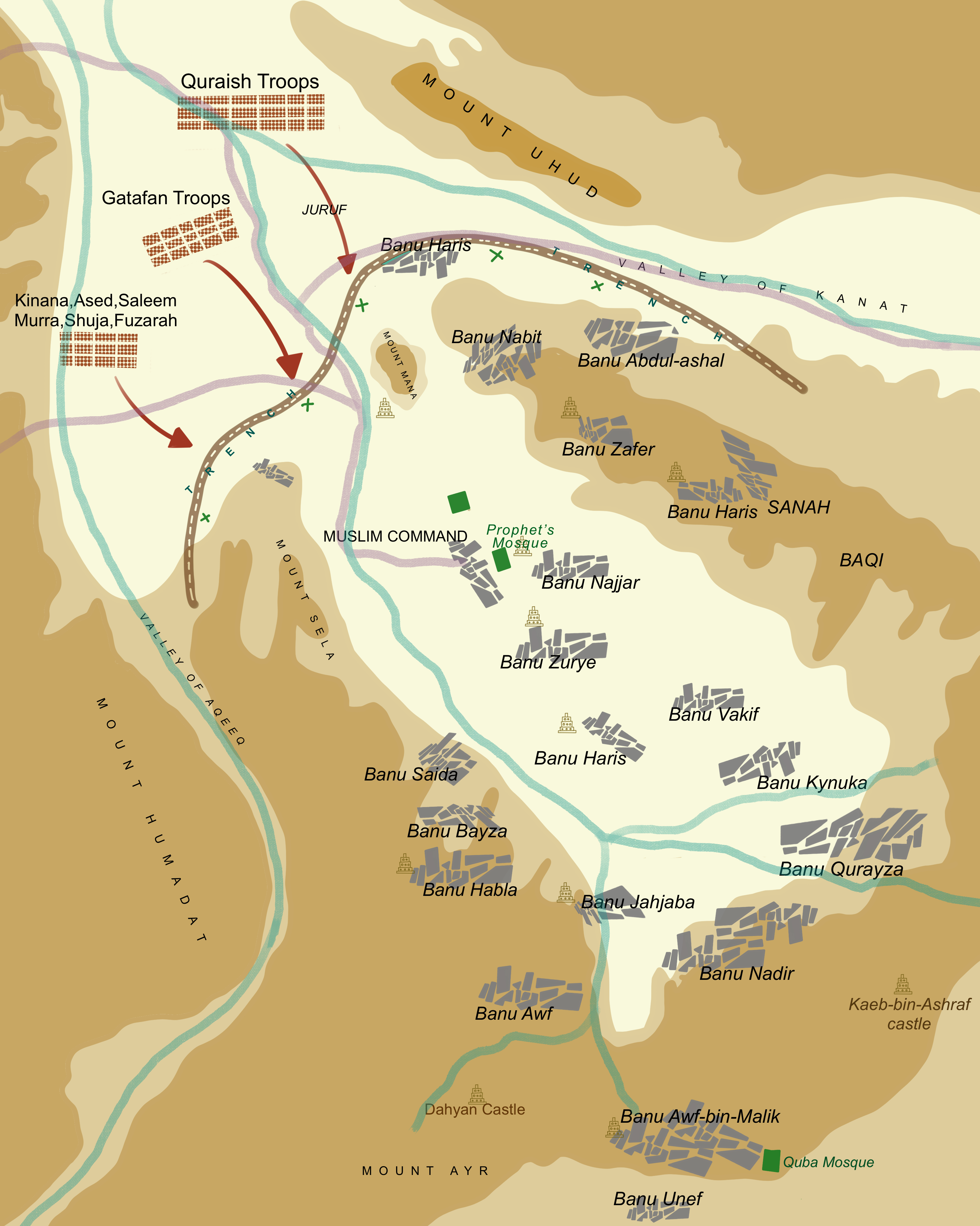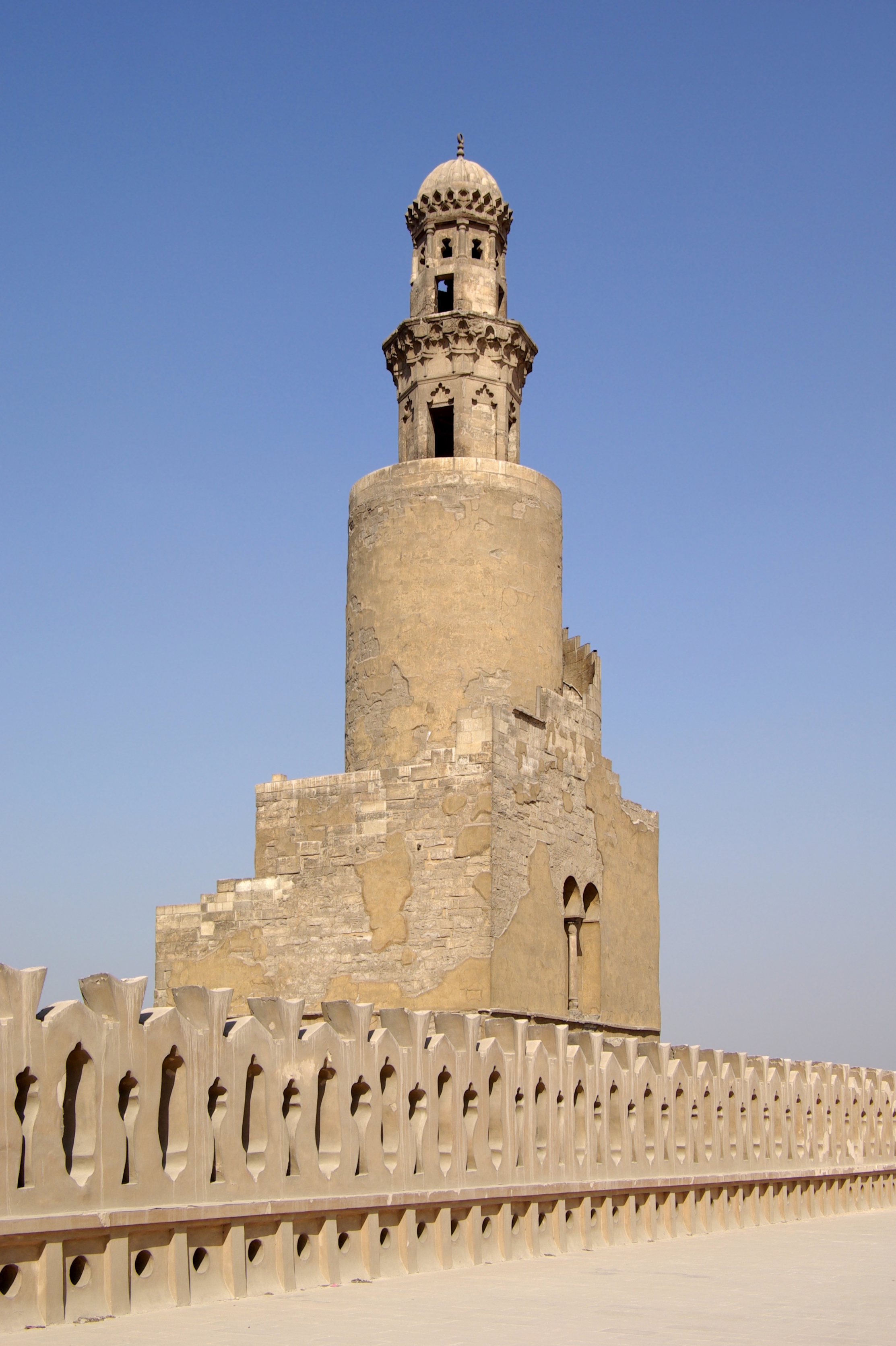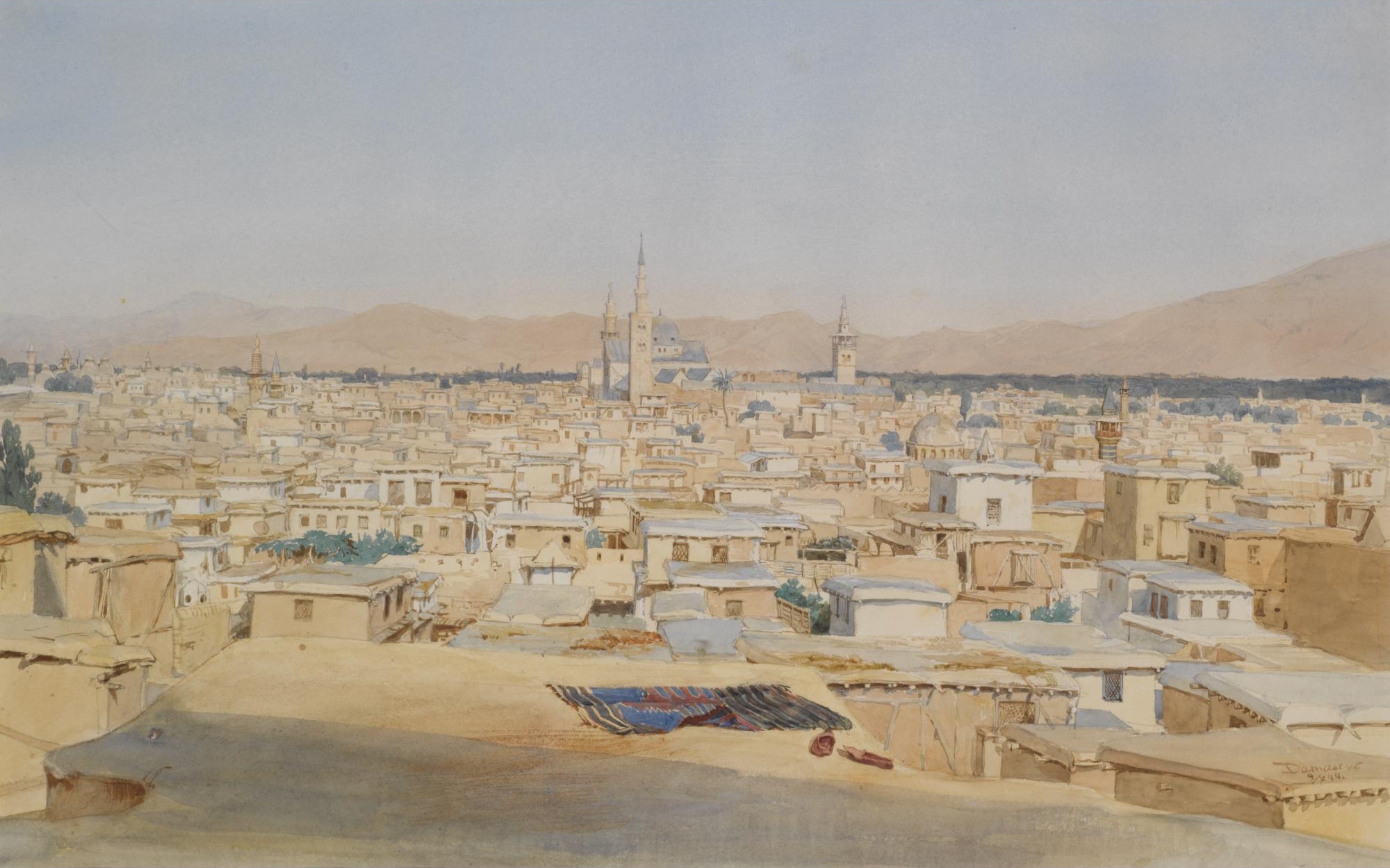|
Zubayrid
Abd Allah ibn al-Zubayr ibn al-Awwam (; May 624October/November 692) was the leader of a caliphate based in Mecca that rivaled the Umayyads from 683 until his death. The son of al-Zubayr ibn al-Awwam and Asma bint Abi Bakr, and grandson of the first caliph Abu Bakr, Ibn al-Zubayr belonged to the Quraysh, the leading tribe of the nascent Muslim community, and was the first child born to the Muhajirun, Islam's earliest converts. As a youth, he participated in the early Muslim conquests alongside his father in Syria and Egypt, and later played a role in the Muslim conquests of North Africa and northern Iran in 647 and 650, respectively. During the First Fitna, he fought on the side of his aunt A'isha against Caliph Ali (). Though little is heard of Ibn al-Zubayr during the subsequent reign of the first Umayyad caliph Mu'awiya I (), it was known that he opposed the latter's designation of his son, Yazid I, as his successor. Ibn al-Zubayr, along with many of the Quraysh and the An ... [...More Info...] [...Related Items...] OR: [Wikipedia] [Google] [Baidu] |
Abd Al-Malik Ibn Marwan
Abd al-Malik ibn Marwan ibn al-Hakam (; July/August 644 or June/July 647 – 9 October 705) was the fifth Umayyad caliph, ruling from April 685 until his death in October 705. A member of the first generation of born Muslims, his early life in Medina was occupied with pious pursuits. He held administrative and military posts under Caliph Mu'awiya I (), founder of the Umayyad Caliphate, and his own father, Caliph Marwan I (). By the time of Abd al-Malik's accession, Umayyad authority had collapsed across the Caliphate as a result of the Second Fitna and had been reconstituted in Bilad al-Sham, Syria and Egypt in the Middle Ages, Egypt during his father's reign. Following a Battle of Khazir, failed invasion of Iraq in 686, Abd al-Malik focused on securing Syria before making further attempts to conquer the greater part of the Caliphate from his principal rival, the Mecca-based caliph Abd Allah ibn al-Zubayr. To that end, he concluded an unfavorable truce with the reinvigorated Byz ... [...More Info...] [...Related Items...] OR: [Wikipedia] [Google] [Baidu] |
Marwan I
Marwan ibn al-Hakam ibn Abi al-As ibn Umayya (; 623 or 626April/May 685), commonly known as MarwanI, was the fourth Umayyad Caliphate, Umayyad caliph, ruling for less than a year in 684–685. He founded the Marwanid ruling house of the Umayyad dynasty, which replaced the Sufyanid house after its collapse in the Second Fitna and remained in power until 750. During the reign of his cousin Uthman (), Marwan took part in a Muslim conquest of the Maghreb, military campaign against the Byzantine Empire, Byzantines of the Exarchate of Africa (in central North Africa), where he acquired significant war spoils. He also served as Uthman's governor in Fars (territory), Fars (southwestern Iran) before becoming the caliph's (secretary or scribe). He was wounded fighting the Assassination of Uthman, rebel siege of Uthman's house, in which the caliph was slain. In the ensuing First Fitna, civil war between Ali () and the largely Qurayshite partisans of A'isha, Marwan sided with the latter at ... [...More Info...] [...Related Items...] OR: [Wikipedia] [Google] [Baidu] |
Al-Zubayr Ibn Al-Awwam
Al-Zubayr ibn al-Awwam ibn Khuwaylid al-Asadi (; ) was an Arab Muslim commander in the service of the Islamic prophet Muhammad and the caliphs Abu Bakr () and Umar () who played a leading role in the Ridda Wars, Ridda wars against rebel tribes in Arabia in 632–633 and later participated in early Muslim conquests of Muslim conquest of Persia, Sasanid Persia in 633–634, Muslim conquest of the Levant, Byzantine Syria in 634–638, and the Exarchate of Africa in 639–643. An early convert to Islam, Zubayr was a commander in the Battle of Badr in 624, in which the latter was instrumental in defeating the opponent forces of the Quraysh. He participated in almost all of the early Muslim battles and expeditions under Muhammad. In the Battle of the Trench, due to his military service, Muhammad bestowed the title ''Hawari Rasul Allah'' ('Disciple of Messenger of God') upon him. After Muhammad's demise, Zubayr was appointed as a commander, in the Ridda Wars, by caliph Abu Bakr. He was in ... [...More Info...] [...Related Items...] OR: [Wikipedia] [Google] [Baidu] |
Umayyad Caliphate
The Umayyad Caliphate or Umayyad Empire (, ; ) was the second caliphate established after the death of the Islamic prophet Muhammad and was ruled by the Umayyad dynasty. Uthman ibn Affan, the third of the Rashidun caliphs, was also a member of the clan. The family established dynastic, hereditary rule with Mu'awiya I, the long-time governor of Bilad al-Sham, Greater Syria, who became caliph after the end of the First Fitna in 661. After Mu'awiya's death in 680, conflicts over the succession resulted in the Second Fitna, and power eventually fell to Marwan I, from another branch of the clan. Syria remained the Umayyads' main power base thereafter, with Damascus as their capital. The Umayyads continued the Early Muslim conquests, Muslim conquests, conquering Ifriqiya, Transoxiana, Sind (caliphal province), Sind, the Maghreb and Hispania (al-Andalus). At its greatest extent (661–750), the Umayyad Caliphate covered , making it one of the largest empires in history in terms of ar ... [...More Info...] [...Related Items...] OR: [Wikipedia] [Google] [Baidu] |
Mecca
Mecca, officially Makkah al-Mukarramah, is the capital of Mecca Province in the Hejaz region of western Saudi Arabia; it is the Holiest sites in Islam, holiest city in Islam. It is inland from Jeddah on the Red Sea, in a narrow valley above sea level. Its metropolitan population in 2022 was 2.4million, making it the List of cities in Saudi Arabia by population, third-most populated city in Saudi Arabia after Riyadh and Jeddah. Around 44.5% of the population are Saudis, Saudi citizens and around 55.5% are Muslim world, Muslim foreigners from other countries. Pilgrims more than triple the population number every year during the Pilgrimage#Islam, pilgrimage, observed in the twelfth Islamic calendar, Hijri month of . With over 10.8 million international visitors in 2023, Mecca was one of the ten List of cities by international visitors, most visited cities in the world. Mecca is generally considered "the fountainhead and cradle of Islam". Mecca is revered in Islam as the birthp ... [...More Info...] [...Related Items...] OR: [Wikipedia] [Google] [Baidu] |
Abbad Ibn Abd Allah Ibn Al-Zubayr
Abbad ibn Abd Allah ibn al-Zubayr al-Asadi () was a Tabi'un and a narrator of hadith (quotations and anecdotes of Muhammad), and a judge in Mecca when it was ruled by his father, Abd Allah ibn al-Zubayr. Biography Abbad was taught and influenced by various Companions of Muhammad, including Umar, his grandmother Asma bint Abi Bakr, his grandmother's sister and wife of Muhammad, Aisha, along with the scribe Zayd ibn Thabit and his own father Abd Allah ibn al-Zubayr. His students, to whom he narrated the Hadith, were his son Yahya, 'Abd al-Wahid ibn Hamza ibn 'Abd Allah, Hisham ibn Urwah, his cousin Muhammad ibn Ja'far ibn al-Zubayr, and 'Abd Allah ibn 'Ubayd Allah ibn Abi Mulayka. Hadith Hadith scholars deem Abbad as an authentic and trustworthy narrator of hadith. Abi Dawud narrated Abdullah ibn Ubaydullah ibn Umayr narrated during the time of Second Fitna, 'Abbad were asking Abdullah ibn Umar: We have heard that the evening meal is taken just before the night praye ... [...More Info...] [...Related Items...] OR: [Wikipedia] [Google] [Baidu] |
Egypt In The Middle Ages
Following the Muslim conquest of Egypt, Islamic conquest in 641-642, Lower Egypt was ruled at first by governors acting in the name of the Rashidun Caliphs and then the Umayyad Caliphs in Damascus, but in 750 the Umayyads Abbasid Revolution, were overthrown. Throughout Islamic rule, Al-Askar, Askar was named the capital and housed the ruling administration. The conquest led to two separate provinces all under one ruler: Upper Egypt, Upper and Lower Egypt. These two very distinct regions were governed by the military and followed the demands handed down by the governor of Egypt and imposed by the heads of their communities. Egypt was ruled by many dynasties from the start of Islamic control in 639 until the early 16th century. The Umayyad period lasted from 658 to 750. The Abbasid period which came after was much more focused on taxes and centralizing power. In 868, the Tulunids, ruled by Ahmad ibn Tulun, expanded Egypt's territory into the Levant. He would rule until his death in ... [...More Info...] [...Related Items...] OR: [Wikipedia] [Google] [Baidu] |
Yazid I
Yazid ibn Mu'awiya ibn Abi Sufyan (; 11 November 683), commonly known as Yazid I, was the second caliph of the Umayyad Caliphate, ruling from April 680 until his death in November 683. His appointment by his father Mu'awiya I () was the first hereditary succession to the caliphate in Islamic history. His caliphate was marked by the death of Muhammad's grandson Husayn ibn Ali and the start of the crisis known as the Second Fitna. During his father's caliphate, Yazid led several campaigns against the Byzantine Empire, including an attack on the Byzantine capital, Constantinople. Yazid's nomination as heir apparent in (56 AH) by Mu'awiya was opposed by several Muslim grandees from the Hejaz region, including Husayn and Abd Allah ibn al-Zubayr. The two men refused to recognize Yazid following his accession and took sanctuary in Mecca. When Husayn left for Kufa in Iraq to lead a revolt against Yazid, he was killed with his small band of supporters by Yazid's forces in the Batt ... [...More Info...] [...Related Items...] OR: [Wikipedia] [Google] [Baidu] |
Abu Bakr
Abd Allah ibn Abi Quhafa (23 August 634), better known by his ''Kunya (Arabic), kunya'' Abu Bakr, was a senior Sahaba, companion, the closest friend, and father-in-law of Muhammad. He served as the first caliph of the Rashidun Caliphate, ruling from 632 until his death in 634. Abu Bakr was granted the honorific title ''al-Ṣiddīq'' (lit. the Veracious) by Muhammad, a designation that continues to be used by Sunni Muslims to this day. Born to Abu Quhafa and Umm al-Khayr of the Banu Taym, Abu Bakr was amongst the Early Muslims, earliest converts to Islam and propagated dawah to the Mushrikites. He was considered the first Da'i, Muslim missionary as several companions of the Prophet, companions of Muhammad converted through Abu Bakr. He accompanied Muhammad on his Hegira, migration to Medina and became one of his Haras (unit), bodyguards. Abu Bakr participated in all of List of expeditions of Muhammad, Muhammad's campaigns and served as the first in 631. In the absence of Muha ... [...More Info...] [...Related Items...] OR: [Wikipedia] [Google] [Baidu] |
Muhajirun
The ''Muhajirun'' (, singular , ) were the converts to Islam and the Islamic prophet Muhammad's advisors and relatives, who emigrated from Mecca to Medina; the event is known in Islam as the '' Hijra''. The early Muslims from Medina are called the '' Ansar'' ("helpers"). During Muhammad's era About a month after Hamzah's unsuccessful attack in the first caravan raid, Muhammad entrusted a party of sixty ''Muhajirun'' led by Ubaydah to conduct another operation at a Quraysh caravan that was returning from Syria and protected by one hundred men. The leader of this caravan was Abu Sufyan ibn Harb. The Muslim party went as far as Thanyatul-Murra, a watering place in Hejaz. No fighting took place, as the Quraysh were quite far from the place where Muslims were in the offing to attack the caravan. Nevertheless, Sa`d ibn Abi Waqqas shot an arrow at the Quraysh. This is known as the first arrow of Islam. Despite this surprise attack, no fighting took place and the Muslims returned empty- ... [...More Info...] [...Related Items...] OR: [Wikipedia] [Google] [Baidu] |
Early Muslim Conquests
The early Muslim conquests or early Islamic conquests (), also known as the Arab conquests, were initiated in the 7th century by Muhammad, the founder of Islam. He established the first Islamic state in Medina, Arabian Peninsula, Arabia that expanded rapidly under the Rashidun Caliphate and the Umayyad Caliphate, culminating in Muslim rule being established on three continents (Asia, Africa, and Europe) over the next century. According to historian James Buchan: "In speed and extent, the first Arab conquests were matched only by those of Alexander the Great, and they were more lasting." At their height, the territory that was conquered by the Arab Muslims stretched from Iberian Peninsula, Iberia (at the Pyrenees) in the west to Indian subcontinent, India (at Sind (caliphal province), Sind) in the east; Muslim control spanned Sicily, most of the Middle East and North Africa, and the Caucasus and Central Asia. Among other drastic changes, the early Muslim conquests brought about ... [...More Info...] [...Related Items...] OR: [Wikipedia] [Google] [Baidu] |







